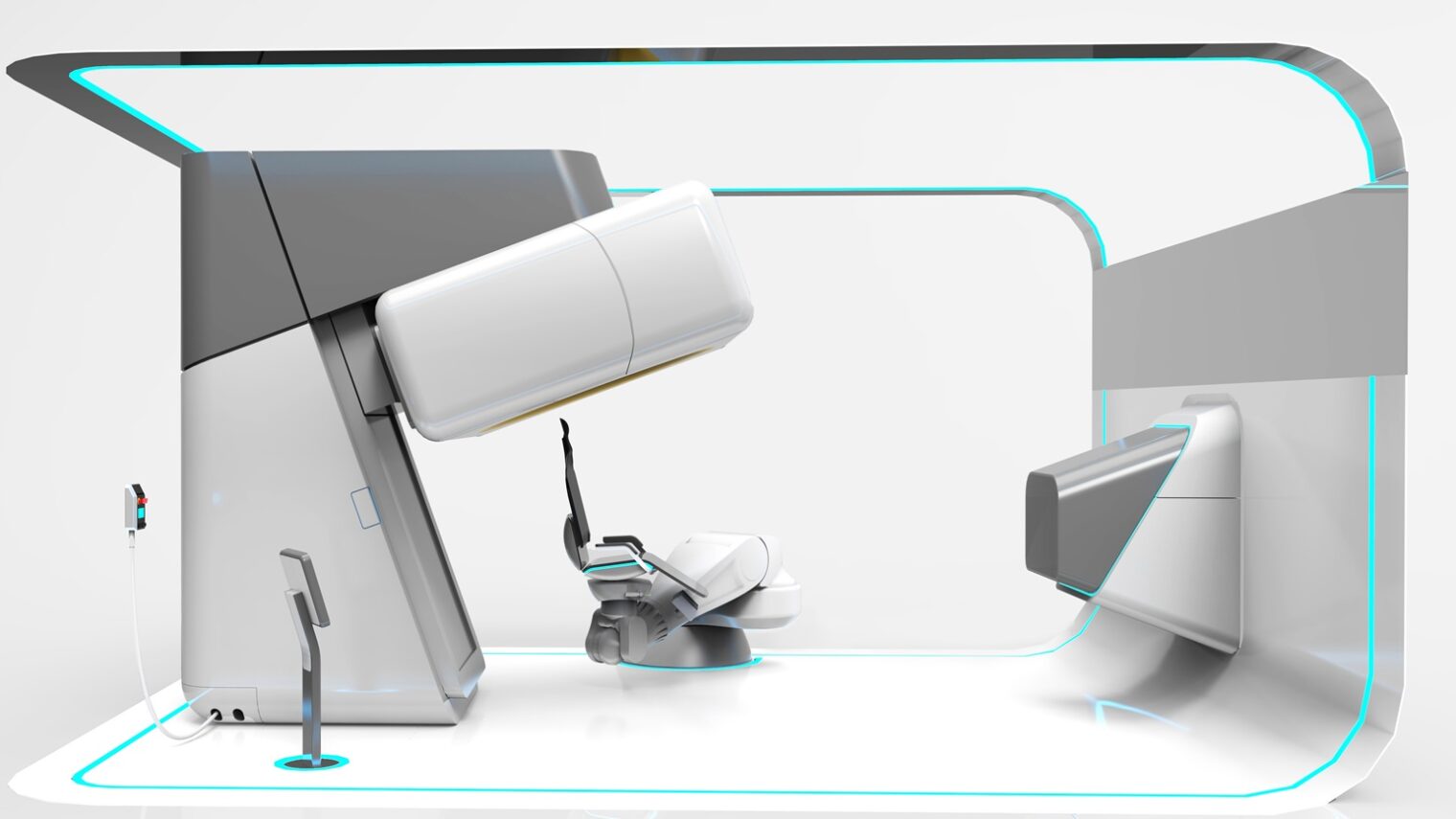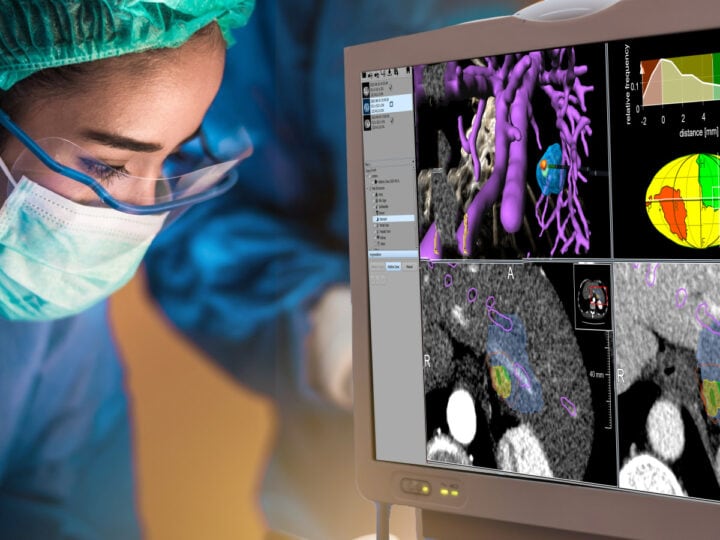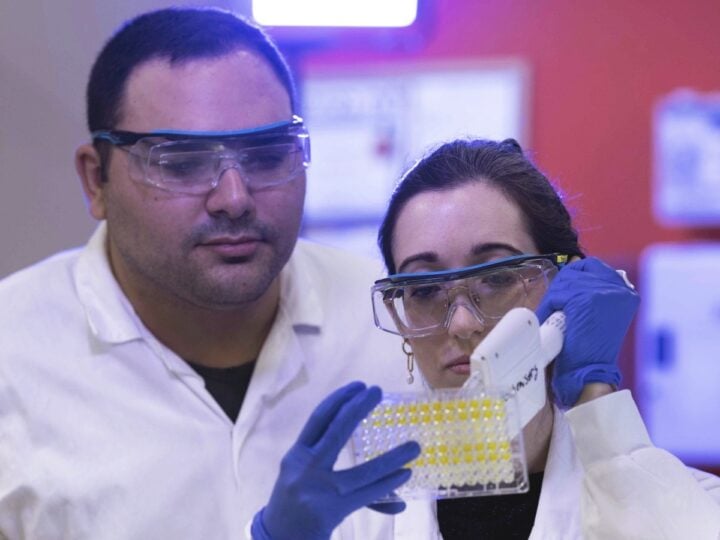Scientists have known for 60 years that proton therapy is a superior form of radiation therapy for cancerous tumors, because it allows for zapping diseased cells with higher doses of radiation while significantly reducing damage to healthy surrounding tissue.
However, proton therapy has been introduced in only a handful of cancer treatment centers because of the high cost of the machinery and space to house it.
Availability could improve dramatically now that a compact, lower-cost device from Israeli company P-Cure has received US Food and Drug Administration (FDA) approval.
The patented P-Cure system uses diagnostic-quality computed tomography (CT) to enable proton-therapy treatment planning, positioning and delivery for cancer patients in a seated position.
The system is more cost-effective and more therapeutically effective than the current standard of treating the patient in a horizontal position, says Michael Marash, PhD, founder and CEO of P-Cure.

“The benefits of treating patients in a seated position include greater patient comfort, less internal organ movement, better saliva drainage and a better position for breathing for asthmatic and other patients experiencing impaired breathing,” he explains. “It may also deliver less collateral radiation to sensitive organs while enabling greater accuracy in proton beam delivery.”
Adult and pediatric patients with cancers of the lung, breast, chest, lower torso, head and neck can benefit from this clinical breakthrough, Marash adds. The initial American trial of P-Cure was carried out in a Chicago hospital with lung cancer patients.
The company has sold three P-Cure systems: one in the United States and two in Europe. Further sales are expected shortly, says Marash.
Advantages of proton therapy
Based in Lod, P-Cure started operations in 2007 with the goal of developing an affordable, compact, scalable device to image and monitor patients using robotic positioning and pencil-beam scanning to enable unprecedented access to tumor sites.
“The targeted nature of the technology eliminates damage to surrounding organs and can be used for all ages regardless of the location of the tumor,” says Marash.
“The market is huge; today 60 percent of cancer patients are treated with radiation. At least 20% of them are eligible to receive proton therapy,” he adds.
“There are 8,000 radiation oncology centers around the world, and only 50 of them use protons — 22 of them in the United States. Our objective is to change the paradigm and enable each center to have a proton system. It’s been very expensive and we can cut the cost by half.”
The cost reduction is in capital expenditures for equipment and construction, the size of a single-room center or multi-room expandable center and the time from center planning to treatment.
Marash tells ISRAEL21c that protons have a built-in “map” affording the oncologist a better tool for targeting and defining the area for treatment. The energy distribution of proton beams can be directed and deposited in tissue designated by the physician in a three-dimensional pattern.
“We are excited to receive FDA clearance for our upright imaging technology. Now, treating patients seated is a reality,” says Marash. “The P-Cure team is committed to enabling all oncology centers and hospitals globally to establish cost-effective proton therapy services for the best possible care and cure.”
The 20-employee company has a subsidiary incorporated in Delaware and is raising money to expand operations. The systems were designed by Taga in Tel Aviv and are manufactured in Israel.
For more information, click here.

















